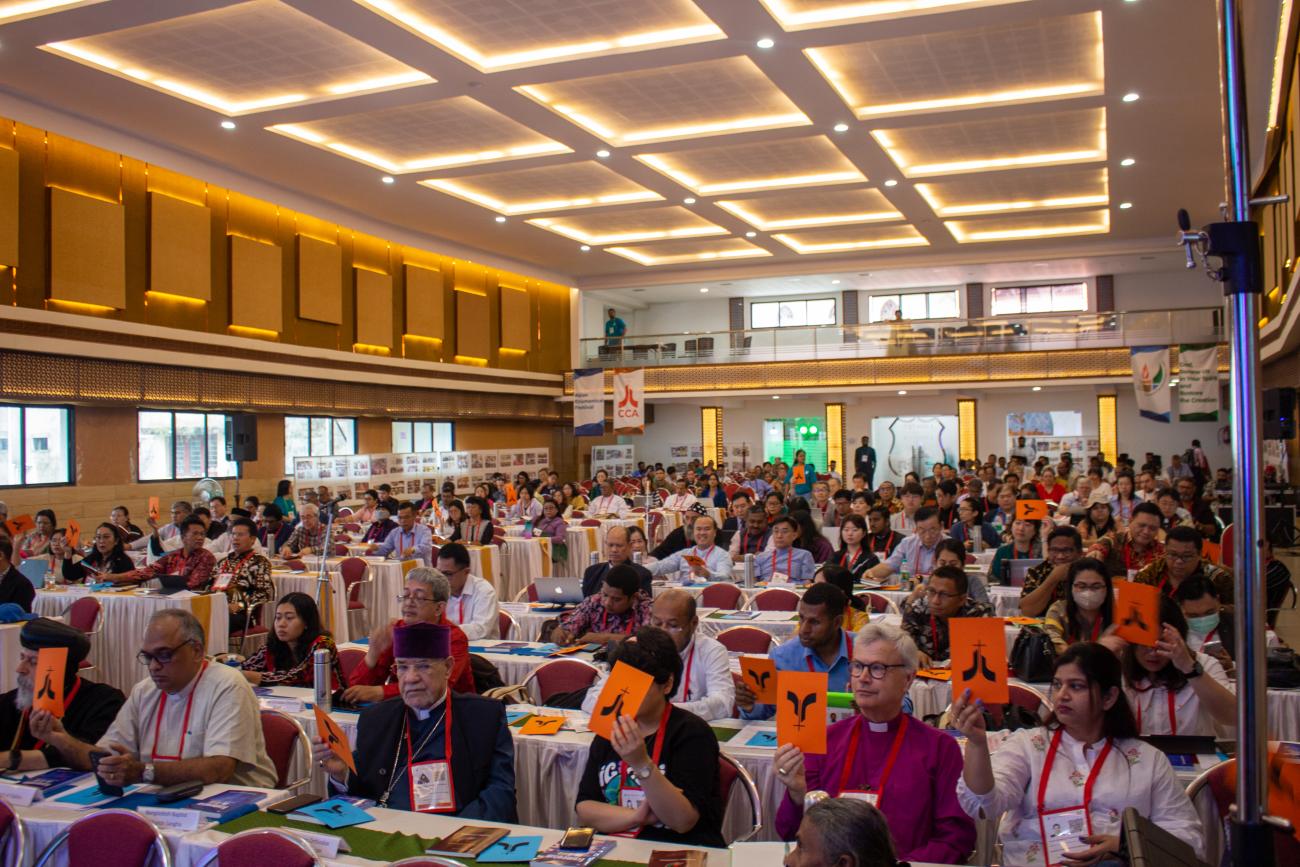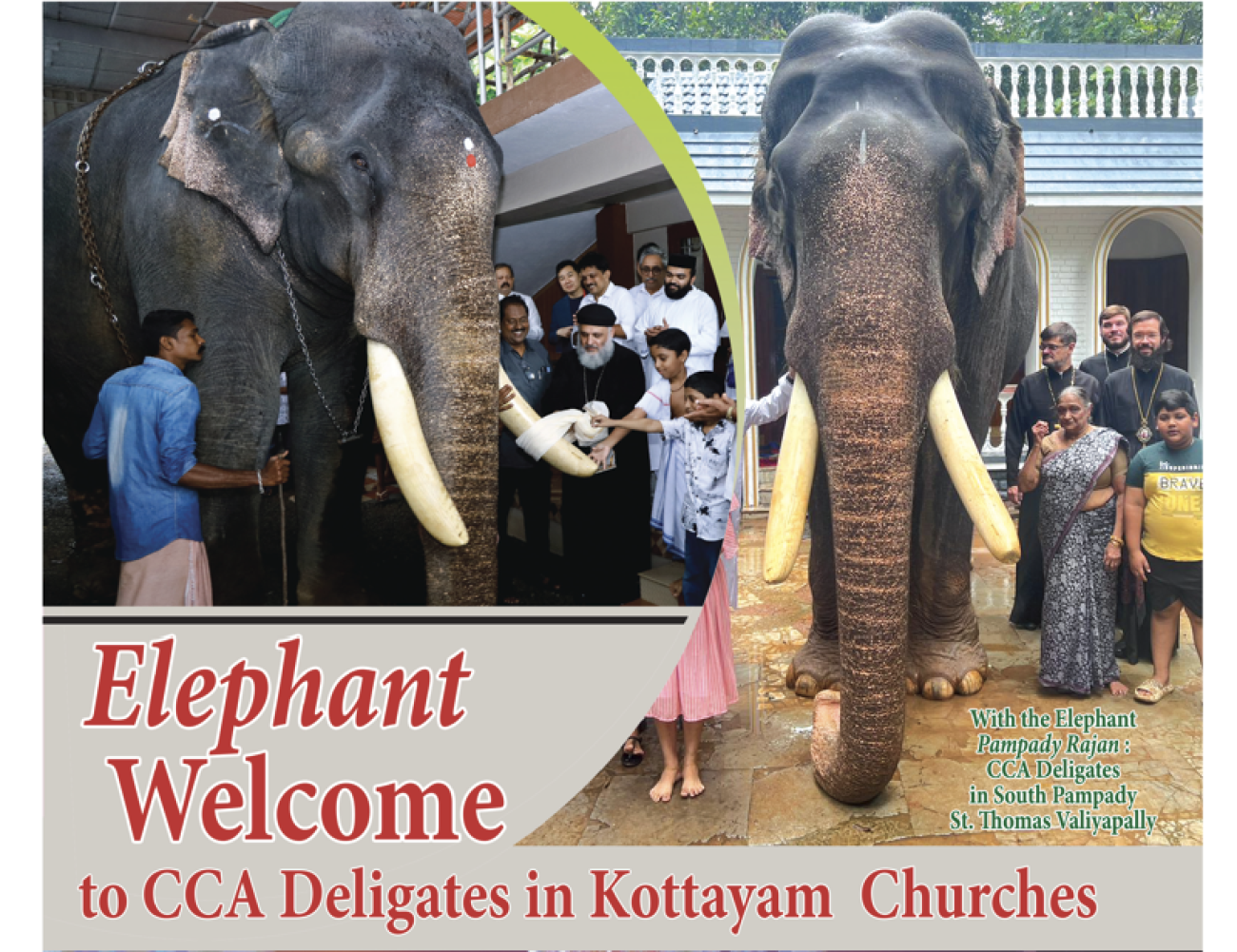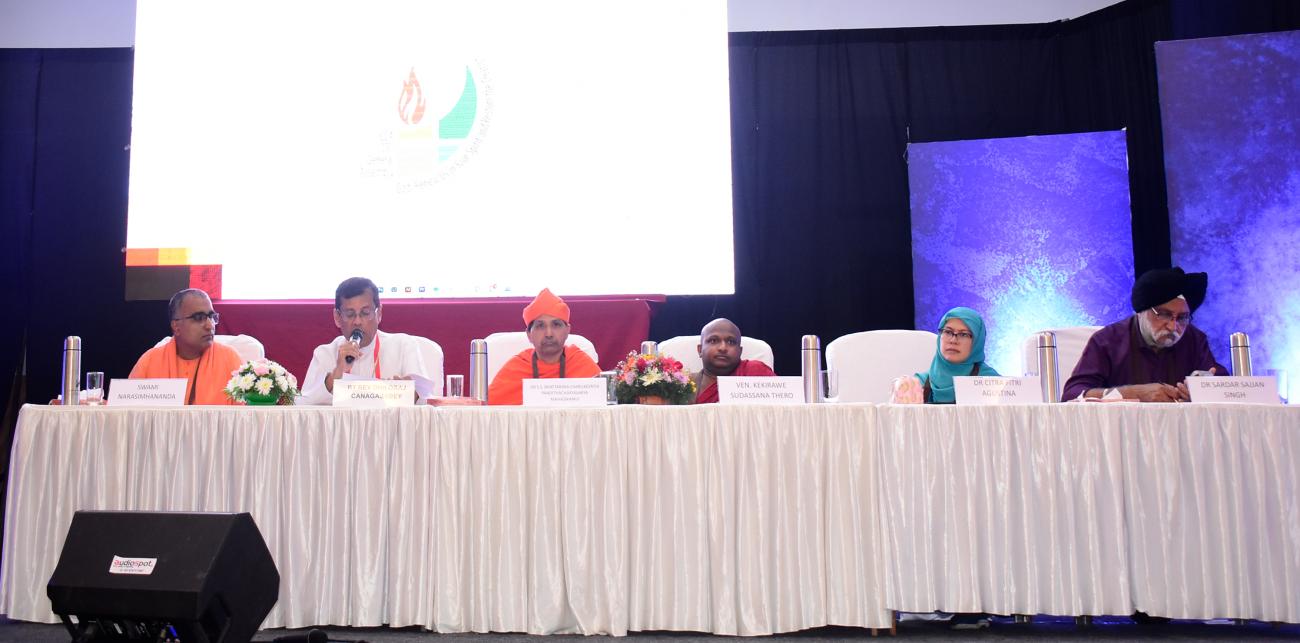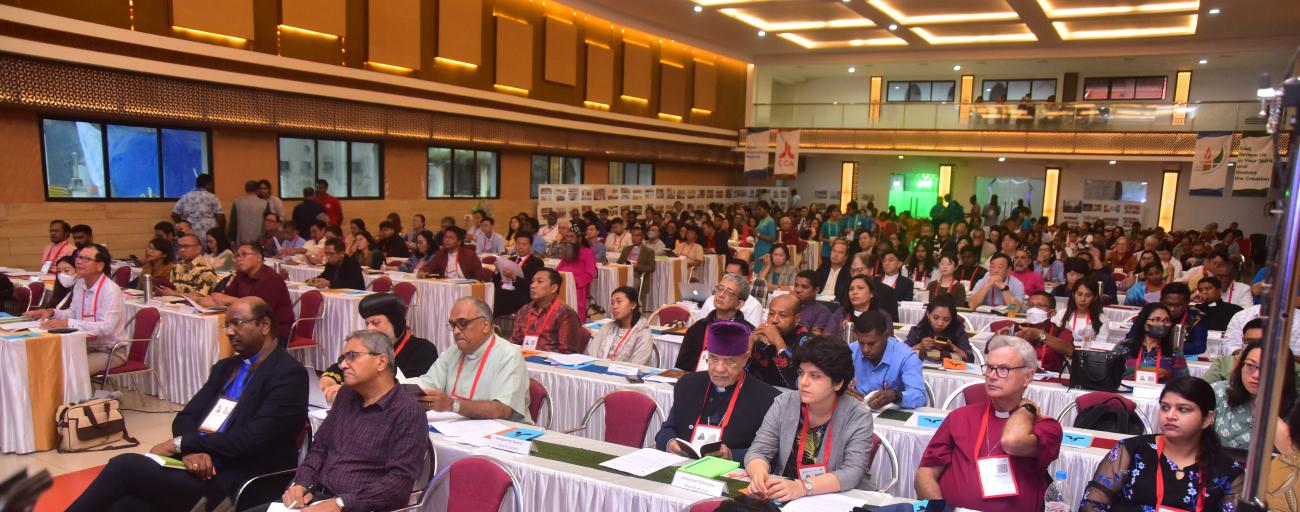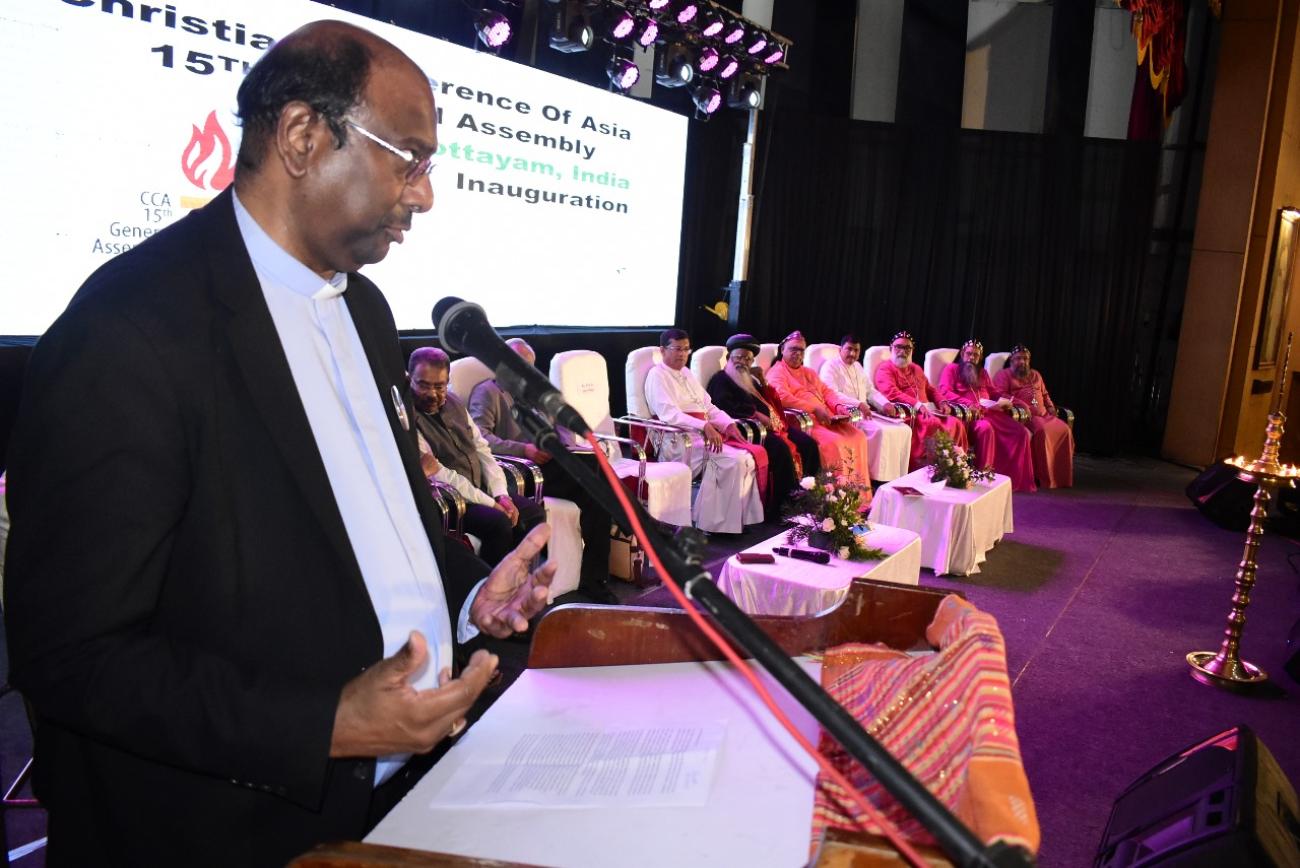Statement of the International Ecumenical Consultation on Peace in East Asia, Seoul, Korea, May 2-4, 2006

As God’s people, followers of Jesus Christ who was crucified for peace and reconciliation, we church leaders and church representatives from countries in Asia, Europe, and North America have met to study, pray, discuss, and meditate on God’s Word in this International Ecumenical Consultation on Peace in East Asia held in Seoul, Korea May 2-4, 2006. The Conference was under the auspices of the World Council of Churches (WCC), Christian Conference of Asia (CCA), National Council of Churches in Korea (NCCK), and Presbyterian Church in the Republic of Korea (PROK). This meeting stands in the spirit of the conferences first held in Tozanso, Japan in 1984 followed by meetings in Glion, Switzerland and in other places which were initiated by the World Council of Churches and the Christian Conference of Asia. We thank God that Christians around the world are praying and working continuously for peace and justice in East Asia and for the reunification of Korea.
"Blessed are the peacemakers, for they shall be called the children of God." (Matthew 5: 9) If we take this statement seriously it can give us a new vision of our mission in the world. Peacemaking is not part of our mission; it is our mission in our day. Reflecting upon the Holy Scripture, we strongly affirm the holistic understanding of peace as the central concern and mission of the Church in the world. We reassert our conviction that security is never won through unilateral defense but through attentiveness to the injustice that afflicts other children of God—and, in Gospel perspective, everyone is a child of God! Holding this conviction, we can learn how to build true and lasting peace in the reality of today’s Asia.
Despite the end of the cold war the North-East Asian region still does not experience peace. Under the armistice agreement the division of North and South Korea still remains as a legacy of the cold war. It continues to be a destabilizing factor in the region.
One of the keys to establishing peace in North-East Asia is the peaceful reunification of the Korean peninsula. But the Conference also identified further obstacles to peace and stability in North-East Asia:
the power struggle between Japan and China,
the Taiwan issue,
the tension between Japan and North Korea
and between the U.S. and North Korea.
We consider that the U.S. strategic flexibility policy as applied to North-East Asia endangers the region more than it contributes to its security. In the global U.S. strategy, Okinawa and the expanded Pyongtaek military base in South Korea are given special geopolitical prominence as major hubs of its military operations. This may lead to situations in which people of various countries in North East Asia become involved in military operations initiated by the US without their consent.
Encouraged by the progress made after the June 15 Joint Declaration of the 2000 South Korea-North Korea Summit, the people of North-East Asia are building a foundation for peace by embracing opportunities for cooperation, exchange and solidarity. The women of the region take a leading role in developing communities of peace by overcoming national, religious and ethnic boundaries. It is in these people and their efforts that we find hope for peace.
We as Christians are called to stand in solidarity with the oppressed and marginalized and seek cooperation with all people committed to peace and reconciliation in East Asia.
We propose that:
- The World Council of Churches (WCC) in consultation with the Korean Christian Federation in North Korea establish a "Round Table" for the development of North Korea;
- The Christian Conference of Asia (CCA) strengthen the North-East Asia Peace and Security Working Group;
- The CCA initiate a consultation involving women, youth and grassroots organizations to explore the issues of peace and justice in North-East Asia;
- The churches in North-East Asia implement a comprehensive program of peace education including the training of ministers, lay leaders, youth and children;
- Materials for peace education and training should be shared among the churches in North-East Asia;
- The churches in North-East Asia intensify regional exchange programs;
- The National Council of Churches in Korea (NCCK) invite the churches in South Korea as well as churches and Christian agencies around the world to join in a Consortium for the social development of North Korea;
- The NCCK write a petition to President George W. Bush not to engage in pre-emptive attacks on North Korea and Iran, to lift the sanctions against North Korea and to initiate a peace agreement to replace the armistice of 1953, and invite churches world-wide to sign this petition;
- Churches world-wide initiate visits to North Korea;
- Churches world-wide join the Japanese churches in their campaign against the revision of Article 9 of the Japanese constitution.
We encourage:
- Christian congregations world-wide to pray fervently for peace in North-East Asia, for the reunification of the Korean peninsula and for the Church in North Korea;
- The churches in Korea, Japan and the USA to organize exposure trips for US citizens to visit the military bases in Pyongtaek, South Korea and Okinawa;
- The National Christian Council in Japan to organize an Asian Ecumenical Conference focusing on the issue of Article 9 of the Japanese Constitution;
- The Presbyterian Church in the Republic of Korea (PROK) to continue its work in the Peace Community Movement Centre and to provide information about Christians in North Korea and prayer proposals that can be used by congregations world-wide;
- The many creative initiatives by Christians to draw attention to the cruel reality of Korean division:
- Peace boat trip on the Han River and Imjin River demilitarized zone
- Memorials of peace
- Peace park along the Han River
- Peace festivals
This Statement was adopted by participants of the Consultation on May 4, 2006 at PROK Academy House, Seoul, Korea


